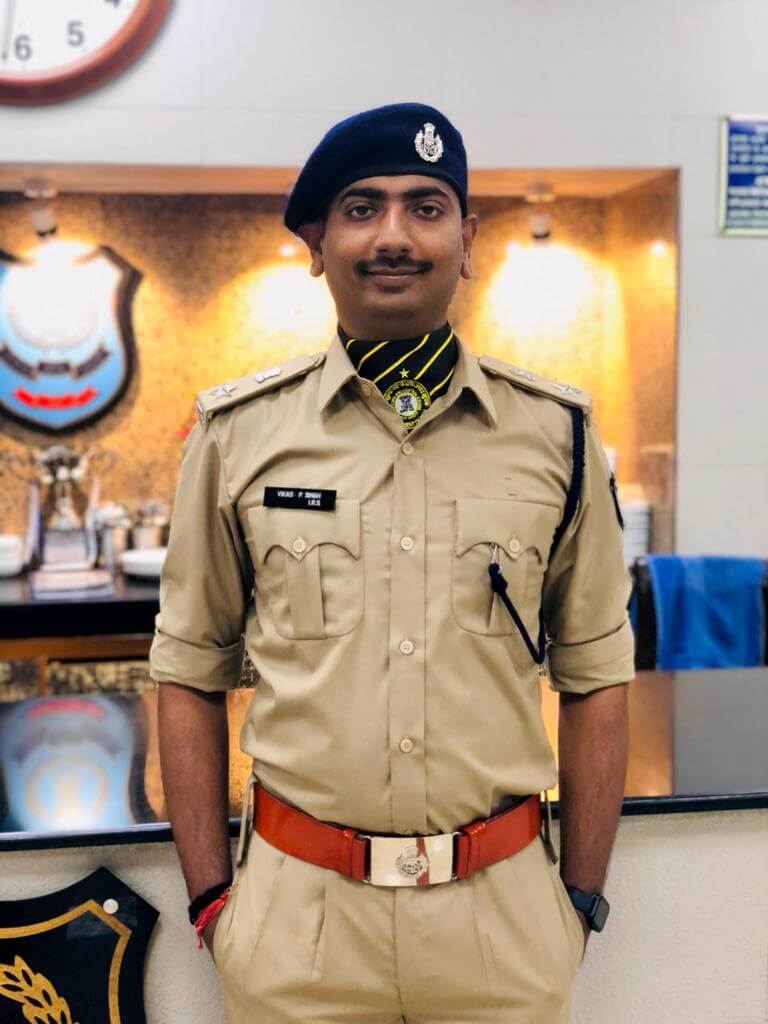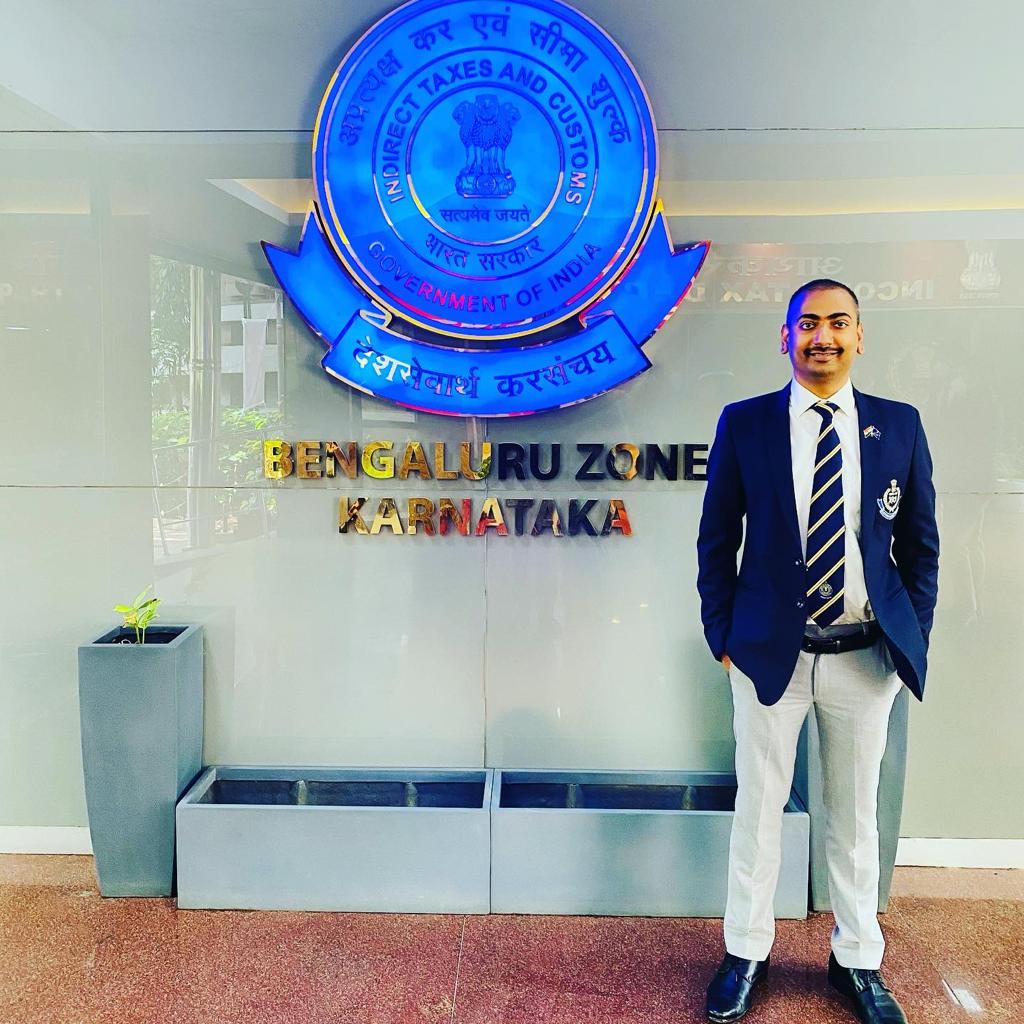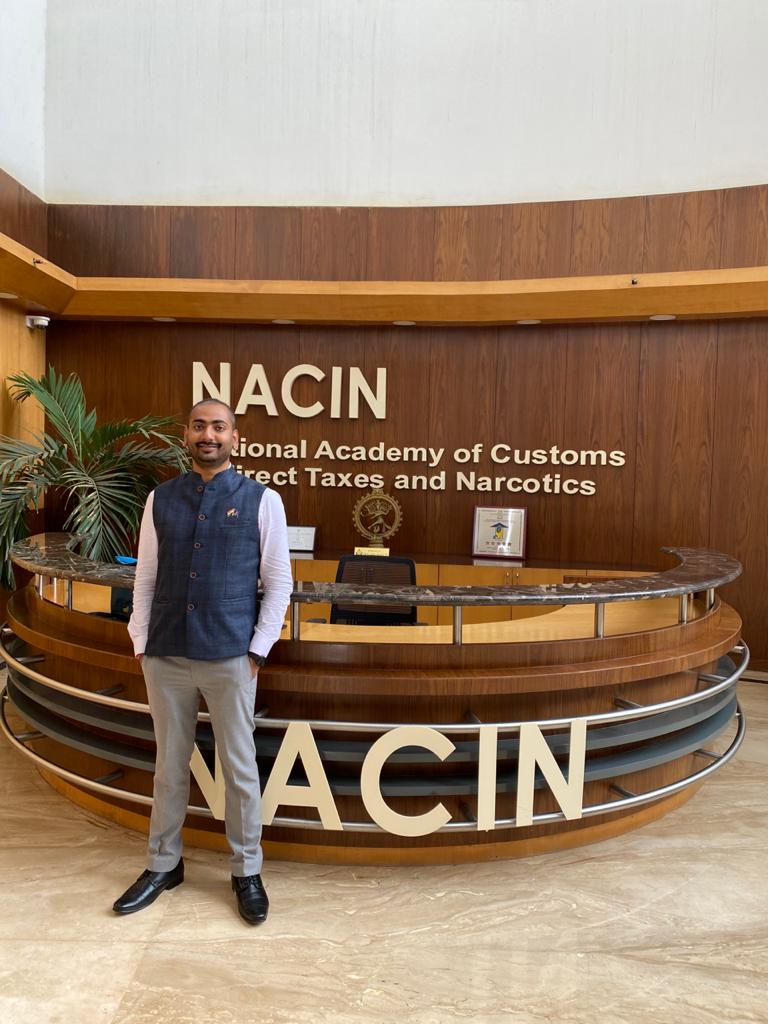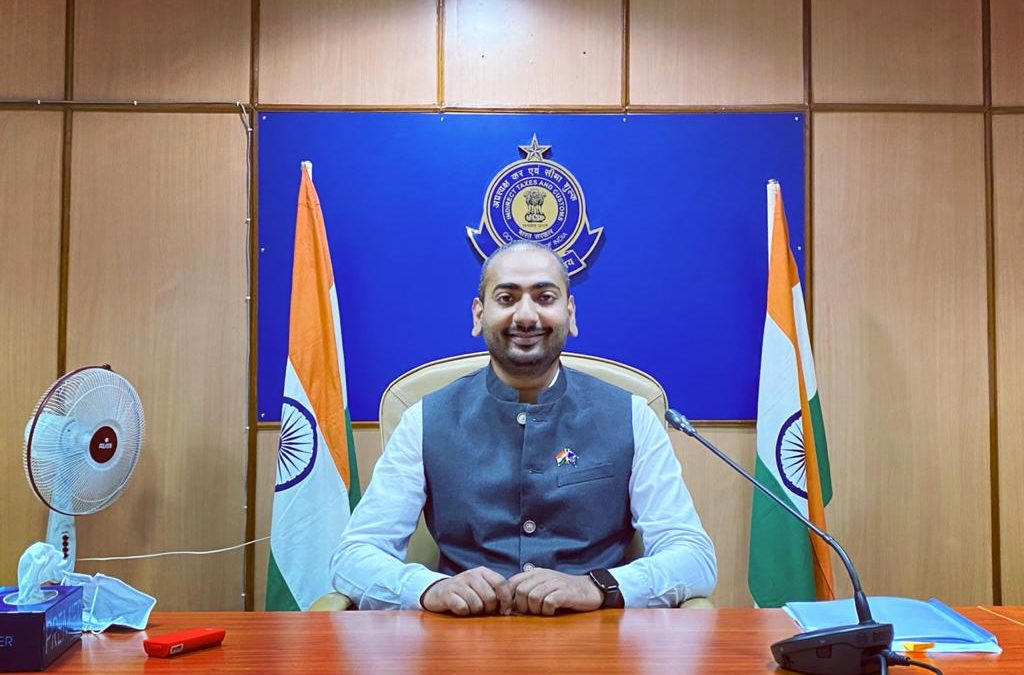Our country is run by many people who work behind the scenes. Often, every facility that makes our lives easy and peaceful is run by the many officers who keep working behind the scenes. From the civil service officials to the people in the army, everyone has a role to play to make our country functional. Many times, we don’t see the stories behind these people. With this story, we take you on the journey of a young IRS officer, Vikas Prakash Singh. Read on to know more about his journey.
Vikas’s first plan was to get into the services and he did so.
Q. Your journey has been an inspiring journey. However, a journey of discipline and dedication. How did you prepare yourself when you were preparing for the civil services?
Ans. Actually, it was pre-decided for me. My father is in civil services and I had seen him work and was motivated by how the system works. He used to tell me stories from work. I decided it then only that I will be getting into the services. So, I started preparing just after I finished graduation.
As for the discipline, the thing is this is a long journey, actually, it is like a marathon instead of being a sprint, unlike other exams. It takes a minimum of 2 years of your life, starting from preparation to getting the first attempt’s result. So, you will have to be mentally prepared and strong. People do get demotivated at times when they cannot prepare well in mock tests or if they fail in an attempt. There are phases of demotivation, but one has to be motivated internally, if the motivation is external, it eventually fades away.
Q. What do you tell people who are preparing for civil services?
Ans. The most important thing is what you want to do and why you want to do it. If you want to get into the services for the perks you can’t go a long way. But, if you want to create an impact, and want to contribute to your nation, you will definitely crack it. Dedication and patience is the key.

Q. Did you have a plan B?
Ans. The thing with me is, I got to the interview on my very first attempt. My thought was if I can get to the interview the first time, I can clear it too. But, by the third attempt, I could not clear, it was then that I realised the importance have a plan B. Everyone should have a plan B because at the end of the day it is a very subjective exam, you can’t deny that. There is always a matter of luck. You should always know when to quit if things don’t go as planned. So, for me, I might have pursued management as I did do an MBA.
Now, startups are growing exponentially and people can opt to be part of one. And, if you still want to do something with the government, there are many other exams that one can attempt such as state civil services exam, SSC, etc.
Q. This job involves a lot of confidentiality and effort. It could be mentally tiring at times. How do you process that?
Ans. As of now, I am in the training phase, therefore it is not as tiring for me. But, from what I have seen from the experience of seniors is that you have to keep working, you have to believe that you are contributing to the country. So, in our department, we work with GST, which contributes to augmenting the revenue of the country, as a result, in nation-building. That should keep you moving. Another thing we do is, the customs department deals with various other issues such drug trafficking and smuggling, apart from revenue collection. So, when you are catching one such criminal, you are actually saving so many lives. You contribute to national security, and that motivates people to keep doing the job.
Q. What has been the toughest moment for you at the job?

Ans. Since, I am still in the training phase, I am yet to face any such tough moment at the job. But, based on the interactions with seniors, there are many tough moments in the work profile of an IRS (Customs & Indirect Tax) Officer. Take for example, receiving tip-off about a banned product being exported. One gets very limited time to first check the authenticity of the information, followed by pursuing the consignment before it boards the vessel. Once it leaves the Indian territory, there is little one can do about it due to jurisdictional challenges. Therefore, the action needs to be swift and time bound. That is the tricky and tough part, as you have to receive the right information and act upon it in time as well.
Q. Often movies romanticize and popularise the idea of a civil service official. Have you ever felt something was very incorrect about your portrayal in movies?
Ans. A movie has very little time to tell a story. So, they just show you the interesting part, it is not their fault as well. They focus on the best part. There are best days and boring days. There are days like at the DRI where you go against a big case and book it. And, there will be days where you will be doing nothing, and just doing a desk job. It is not that a civil servant cracks a big case every day, the it is depicted in James Bond movies. For example, during the pandemic, at one point, everything was at a standstill.
Q. As you said the pandemic did have an impact on your job. How has the pandemic changed the job?
Ans. Yes, it has changed a lot, things have moved online. Technology has become a huge part of the job. We had our classes and assignments online (training classes) as well. Even GST assessment happens electronically now. Files have moved online, it has also made communication easier. People can just do meetings online or in a hybrid mode. This has helped increase productivity. The job has become easier too. As everything is in the form of big data, you can process it easily. It has become easy to find errors and issues. We can easily analyze things like tax evasion, with the luxury of sitting in the office.
Ans. Yes, it has changed a lot, things have moved online. Technology has become a huge part of the job. We had our classes and assignments online (training classes) as well. Even GST assessment happens electronically now. Files have moved online, it has also made communication easier. People can just do meetings online or in a hybrid mode. This has helped increase productivity. The job has become easier too. As everything is in the form of big data, you can process it easily. It has become easy to find errors and issues. We can easily analyze things like tax evasion, with the luxury of sitting in the office.

Q. You are an avid traveler. Tell us how your love for traveling started.
Ans. It started with my father’s transfers. That is when I got used to a lot of traveling. I started getting to go to different places and during college, I used to travel with my parents. During my graduation, I explored a lot of places in the southern part of the country. Later, I received the Charpak scholarship from the Government of France to study for a semester in France. During that period, I explored Europe, and travelled to some 15 countries. It was an amazing experience and I hope to travel to more countries in future. I usually like places that are close to nature and have low tourist traction.
Q. Have you ever felt bad that you have to keep traveling and make new friends as a child?
Ans. Initially, I used to feel bad, I used to be sad. I used to be a newcomer in schools and the people who knew each other for several years got along well, unlike me. But, when I started adjusting, I started enjoying it. Often, I could connect with kids who had parents in similar transferable jobs such as in the government or the armed forces. We would bond on something common. Moreover, I was lucky to have many classmates who were receptive and open to making new friends and accommodating me. As a result, I now have friends in several places, across the state and country. This was also one of the reasons I chose civil services as one can travel and meet new people.
Q. What is something that infuriates you about the country?
Ans. There is nothing that infuriates me about the country. The only thing I am infuriated by is the long British rule that left us with nothing. We had to start from scratch. They took almost everything from us. Now, people here are very hardworking, everyone in the country is. Individual contribution from the citizens can ultimately lead to the nation becoming a superpower one day.
To Vikas, patriotism is everything the preamble stands for. He says, to every individual, our country means pluralism, secularism, and everything our freedom fighters fought for. Leaving with that thought, we hope that this conversation would have reminded you of what the country is to us. More importantly, a reminder of why we exist as a country, together and stronger.


